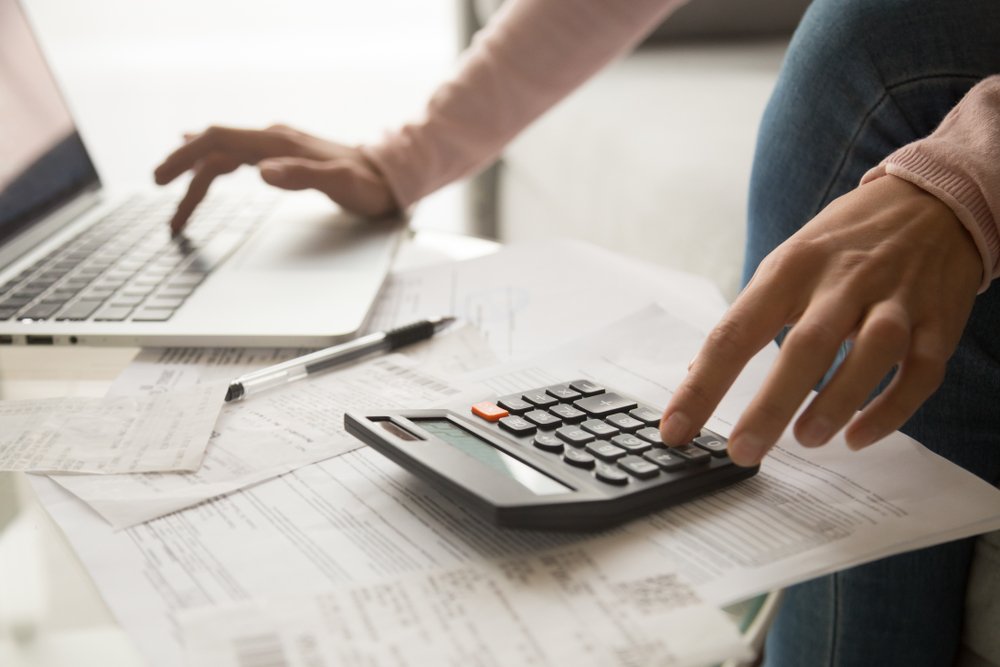In this article
- Why make a budget?
- The different steps to making a budget
- Analyze and update your budget
Why make a budget?
If the idea of establishing a budget may seem difficult to some people, this exercise is nevertheless important to better understand where your money is going and ultimately to develop better financial habits.
This exercise is also a great help to balance your income and expenses, but also to regain control over your finances. It can also allow you to pay off your debt and save for the projects that are important to you, or to build an emergency fund to deal with the unexpected.
How to make a budget
Find the tool that suits you
There are many budget tools to make your job easier. All you have to do is enter your income and expenses in the fields provided for that, and the calculation will be done automatically.
For example, the Budget Planner offered by the Government of Canada lets you create a personal budget and save it online. As the exercise progresses, tips and suggestions are offered to help you stay on track, and charts even illustrate where your money is going.
Other apps are available on your phone or computer to keep an eye on your cash flow; some even automatically sync with your bank account as you trade, so you can monitor your cash inflows and outflows.
List your income
In addition to your salary, it is likely that you have other sources of income. This could be tips, bonuses or commissions, social assistance or employment insurance benefits, investment income, an annuity, alimony, CNESST allowance, family allowance, Quebec solidarity tax or GST and QST refunds. Most of these amounts are usually found in the “Deposit” column of your bank statement.
However, remember to enter your net income, that is after tax deductions, as well as all the amounts that you have received them. If in doubt, your pay slip and your last tax statement can provide you with valuable information.
List of your expenses
Just like income, all expenses must be reported in the appropriate boxes. If some items are not in the budget tool, you can easily add them to the table.
Among the different categories are fixed expenses such as rent or mortgage, electricity, telecommunications services (internet, subscription to cable or various video-on-demand platforms, mobile phones and personal phones), sports subscriptions, public transport tickets, expenses related to pets, insurance ( life, serious illness, disability) and debt repayment.
Variable expenses include groceries, excursions and restaurants, clothing and beauty and grooming products, medical expenses, gifts and vacations.
As for one-off expenses such as registration fees, license renewal, vehicle maintenance expenses and any repairs or due to a professional order, these should not be overlooked. The previous year’s invoices could give you a good idea of the amounts that can be expected for the current year.
Do not hesitate to keep your invoices to determine your various expenses and, above all, not to forget the purchases paid in cash, which can have a significant impact on your budget. For example, the sweet treat paid for $3 to brighten up your coffee break will end up costing you more than $700 by the end of the year.
Finally, remember that the more precise the amounts are, the more the budget will reflect your financial situation. Your bank and credit card statements can be of great help to you.

The importance of paying yourself first
In addition to the amounts set aside to pay off your debt, a portion of your budget should go towards savings, whether it’s for your retirement or simply to carry out the projects that are important to you. The amount will largely depend on the content of your goals and your financial situation. You will definitely see more clearly once your budget is set.
Building an emergency fund is also a must. This should allow you to cover three to six months of expenses to cover unforeseen events such as job loss, illness resulting in incapacity or a major financial failure.
If it may seem like a mountain to set aside these amounts, there is nothing to stop you from starting with small amounts. You probably won’t even realize it.
Analyze your budget
When your income, your expenses and the amounts set aside for savings and an emergency fund are integrated, you will then discover whether you are in a deficit or, on the contrary, on the right track.
In any case, it is important to review all expenditure items to specifically target redundant expenses that can be reduced or completely eliminated.
This exercise will also help you better balance your budget by, for example, scheduling more important payments or reassessing your ability to repay your debt.
Update your budget regularly
During the first few months, you can get into the habit of reviewing your budget to see if it is realistic. You’ll also have a better idea of what’s coming out of your pockets, and it’ll be easier to correct course if necessary. To do this, don’t hesitate to write down your expenses and keep your invoices.
Finally, don’t forget to update your budget as your situation changes. The arrival of a child, the purchase of a property, the loss of a job or simply a decrease in your expenses are all events that will affect your financial situation.
To remember
- Budgeting is a great way to manage your finances
- There are several tools available to help you
- It is important to make an accurate list of your income and expenses
- Budgeting can help you save
- Updating your budget will keep you on track